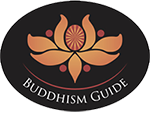There is a 12-year-old boy in the village where I live and he spends the day begging. It isn’t his fault because he, along with his mentally ill mother, have been thrown out of their home by the father. I am extremely concerned about this little guy, and one day last week I was discussing what can be done to help him with two friends of mine. A Buddhist monk joined us and I explained my concerns to him. He simply said, ‘It’s his karma and he must have been bad in his past life.’ He just dismissed the situation like that and started talking about something else.
This is the danger of misunderstanding or misinterpreting the words of Buddha. If you cover Buddha’s words with mysticism, superstitions, elaborate ritual practices and dogma you can totally miss his point.
Firstly, Buddha never said everything is karma and, secondly, even if he did, he wouldn’t have wanted you to not help others who are suffering – remember that little thing called compassion?
My understanding of karma is that our actions have consequences. If we are a good person and ensure we do not harm others, our mind will be calm and peaceful. But if we act in a bad way and harm people, our mind will be tormented and agitated. If we help others we are also helping ourselves and if we have been bad in the past we can change that and become good. So to dismiss someone’s suffering by saying it is their karma is not only wrong, it’s cruel.
It doesn’t matter if you are a traditional Buddhist, born Buddhist or a secular Buddhist, but it does matter if you hide behind some Buddhist teaching and refuse to help a fellow human being. We must approach the teachings with a critical mind. Don’t just blindly believe because it is in an ancient book or your teacher told you. Think for yourself. Does it fit in with your experience? If not, I suggest you leave it, but if it does then embrace it.
We don’t know if we have been here before or if we will come back again, but what we do know is that we are here now. So we must try to minimise our own suffering and the suffering of others. We should see compassion as a verb and not just a noun we use in our prayers or meditation practice.
How would you feel if you hit on hard times and no one was willing to help you, because what you’re going through is just your karma? I am sure you would be very unhappy. So please, contemplate the words of Buddha and build true compassion for others.
You can read more blogs, listen to podcasts, watch videos and practice guided meditations on the Buddhism Guide app. Available from the Apple Store and Google Play.
If you would like to become a supporter of Buddhism Guides work, such as podcasts, blogs, videos and guided meditation practices, please visit here. You can support for as little as $2 a month.

Excellent article. Thanks!
Ven. Yeshe,
I agree 100% with what you say, and I agree this is a dangerous and too easy attitude among Buddhists. I hear it too often.
It is also not correct, according to the very words of the Buddha. He pointed out that the workings of karma are very complex, and we can’t tell by looking at a person’s situation what the causes are. Only the enlightened ones who obtain special knowledge are capable of saying with any certainty what the karmic action is that has created a particular result. The rest of us are only guessing, and such speculation is a form of gossip and can be very damaging. Better to keep silent.
While it is true that in general good karmic cause produces pleasurable effect, and the opposite with bad cause, every person carries a large and complex bundle of karma around, with various causes manifesting at different times.
Also, a situation is not always as it appears, but usually much deeper and more complex than our shallow vision can perceive. A person in a very difficult situation, perhaps someone who has mental or physical disabilities, may be carrying out the work of a bodhisattva and helping many sentient beings!
For those who want to read the words of the Buddha on the complexity of karma and its results, I suggest reading Majjhima Nikaya Sutra 136, the Greater Exposition of Action, Mahakammavibhanga Sutta. There are many others as well.
I suggest humility in the face of our limited understanding of this amazing and complex universe.
peace and metta/maitri to all our friends